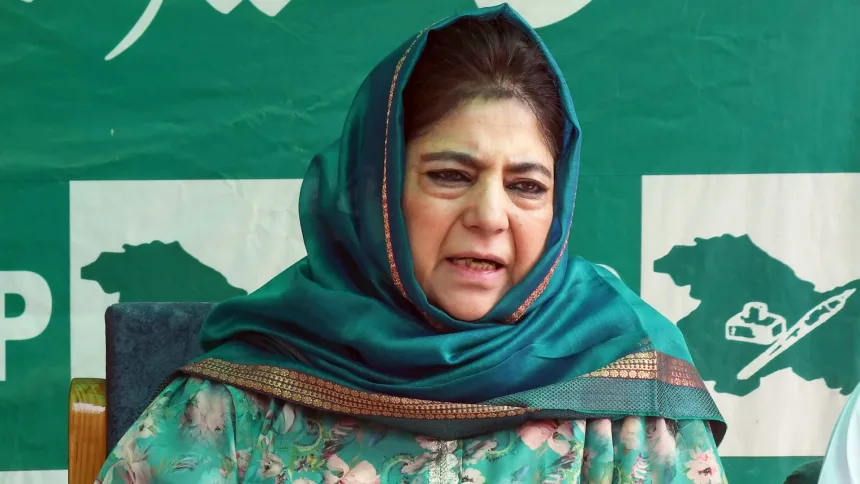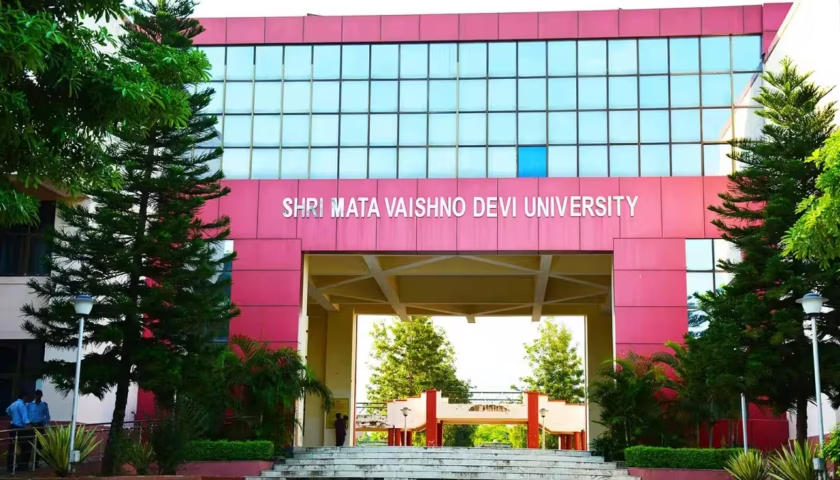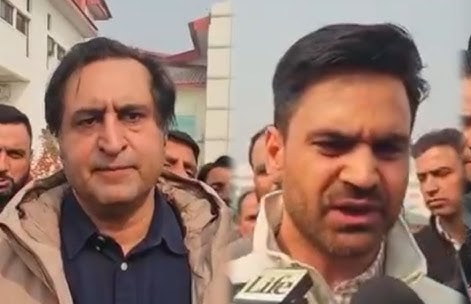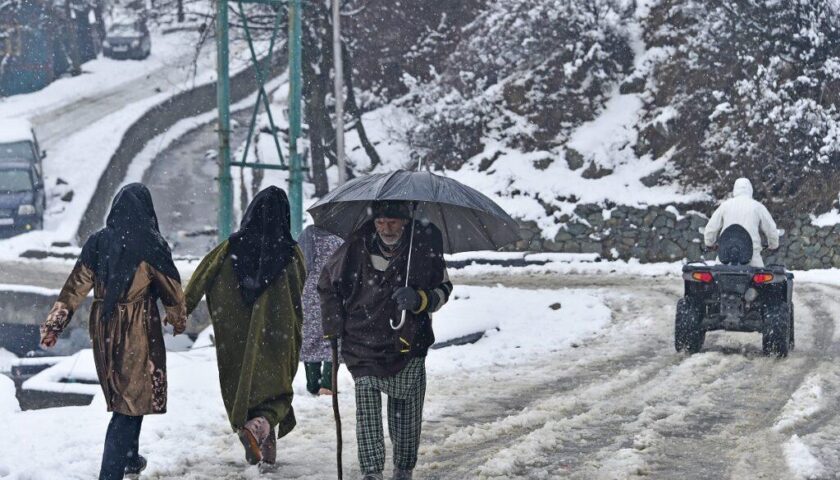Mehbooba Mufti has urged the Central Government to revisit its Kashmir policy and initiate dialogue, warning that current approaches are pushing youth towards despair and violence. She emphasized that reconciliation, not militarism, is the way forward.
A Turning Point in Kashmir Discourse
Former Jammu & Kashmir Chief Minister and Peoples Democratic Party (PDP) President Mehbooba Mufti has made a forceful appeal to the central government — it’s time to revisit Kashmir policy, she says, and open a meaningful dialogue. In her words, continued reliance on “security crackdowns” is driving Kashmiri youth into radicalization and despair, undermining any long-term peace efforts.
Her call is not just political rhetoric. It comes in the wake of the November 10 Red Fort blast in Delhi, which she links directly to Kashmir’s unresolved tensions. Mufti warns that securitized approaches have only deepened alienation in the Valley, while pushing its younger generation toward hopelessness and violence.
In this detailed analysis, we dive into the substance of her appeal: why she’s demanding a pivot away from militarism, how youth are responding, the broader national implications, and what the path forward might look like.
The Case for Dialogue: Mufti’s Vision of Reconciliation
01. Revisiting Atal Bihari Vajpayee’s Legacy of Dialogue
Mufti repeatedly invokes the legacy of Atal Bihari Vajpayee, arguing that his path of talk—not tanks—offers a more sustainable solution for Kashmir. Vajpayee’s tenure in Indian politics is often remembered for its commitment to democratic values and, importantly, for seeking peace through conversation.
-
According to Mufti, the Centre should return to that model of reconciliation, bridging divides and offering political engagement rather than purely military responses.
-
She posits that Kashmir should not be treated as a problem to be contained but as a political issue that demands statesmanship.
02. Why Militarism Has Failed
Mufti argues that the current security-first approach has not only failed to quell unrest but has worsened it.
-
She suggests that continuous presence of forces, use of stringent laws like the Public Safety Act (PSA), and mass detentions are creating a deep trust deficit.
-
Rather than creating stability, these measures are said to be fueling resentment, leaving youth feeling alienated and disengaged. Her assertion is that force may temporarily suppress dissent — but it cannot build lasting peace.
The Human Cost: Youth, Despair, and Radicalization
01. Broken Promises: From Laptops to Alienation
One of Mufti’s most searing criticisms is of the government’s oft-repeated promise to “replace stones with laptops.” She argues that this pledge has largely remained unfulfilled.
-
Instead of providing constructive opportunities, she insists, the youth are being pushed toward extremism or even suicidal violence because of despair.
-
Educational and economic marginalization, according to her, is driving a wedge between the next generation and the state — a gap that militant ideologies can exploit.
02. The Red Fort Blast as a Wake-Up Call
Mufti connects the November 10 suicide blast near Delhi’s Red Fort with the unresolved crisis in Kashmir — saying that the troubles of the Valley “echoed right in front of the Red Fort.”
-
She warns that if terrorism is connected to Kashmiri youth, this will have devastating social and political consequences.
-
At the same time, she demands a fair and transparent investigation, cautioning authorities against alienating innocent families of the accused.
-
Mufti also decries the harassment of the families of the accused — especially doctors — calling them “among the most intelligent and educated” of Kashmir’s youth.
03. An Appeal to Young People
Despite her strong rebuke of the government, Mufti also calls on Kashmiri youth to choose peace over violence.
-
She encourages them to invest in education and constructive engagement, rather than succumbing to destructive cycles of extremism.
-
The larger message is one of hope and agency — that youth can be architects of their future, even in a region scarred by conflict.
Trust Deficit & Human Rights: The Unseen Wounds
01. Years of Crackdowns, Years of Distrust
Beyond immediate security concerns, Mufti points to the long-term erosion of trust between Kashmiris and the state.
-
Repeated crackdowns, preventive detentions, and the misuse of laws like the PSA have contributed to a deep alienation among the population.
-
She argues that human rights must be at the heart of any policy reset, suggesting that reconciliation cannot happen without justice.
02. The Call for Transparent Investigations
In light of the Red Fort blast, Mufti insists on a probe that’s not just thorough but respectful of the dignity and rights of the accused and their families.
-
As per her statements, justice should never come at the cost of dignity.
-
She warns against punitive mass investigations that target entire communities — such approaches risk undermining the values of fairness and equality before the law.
National Security at Stake: Kashmir’s Turmoil, India’s Risk
01. Kashmir’s Unrest Is Not Isolated
Mufti’s argument about the Red Fort blast underscores a sobering truth: instability in Kashmir does not remain confined to the Valley.
-
By linking domestic terror incidents to Kashmir, she serves a stern reminder that Kashmir’s crisis has national consequences.
-
According to her, unresolved grievances can stoke radicalization that spills over into the rest of India, challenging the narrative that Kashmir is “back to normal.”
02. Strategic Myopia: Why Dialogue Makes Strategic Sense
From a security perspective, Mufti suggests that high-handed strategies are not only morally flawed but also strategically short-sighted.
-
She contends that military measures may offer temporary stabilization but do not build durable peace or loyalty.
-
A more sustainable long-term solution, she argues, is political engagement: if Kashmiris feel genuinely heard, they are less likely to turn violent.
Broader Political Implications: Influence & Momentum
01. Pressure on the Centre
Mufti’s remarks add significant political pressure on the central government.
-
At a time when the Centre insists on its narrative of “normalcy” in Kashmir, her critique gains weight from both civil society and political actors who have long called for engagement.
-
Her words could catalyze renewed debate within New Delhi on whether the current security-heavy approach is politically and morally sustainable.
02. Resonance with Civil Society
Her appeal is not just political — it resonates deeply with a wide segment of Kashmir’s population who feel sidelined.
-
The call for dialogue speaks to activists, intellectuals, youth, and community leaders who continue to demand political agency.
-
By framing reconciliation as a social imperative, Mufti underscores that peace in Kashmir is not just a political need but a moral and societal one.
Mufti’s Broader Vision: Long-term Reconciliation
01. Advocating for India–Pakistan Dialogue
Mufti does not limit her call to internal policy change — she also urges dialogue with Pakistan.
-
She argues that the Kashmir issue is inseparable from India’s wider foreign policy and that India must take the lead in reconciliation rather than war.
-
By appealing for diplomacy over arms, she is pushing for a paradigm shift: from confrontation to cooperation.
02. Return and Rehabilitation of Kashmiri Pandits
In addition to talking about dialogue, Mufti has also addressed the return of displaced Kashmiri Pandits.
-
She submitted a formal rehabilitation proposal to Lieutenant Governor Manoj Sinha, asserting that any political resolution in Kashmir must include the Pandit community.
-
This underlines her broader vision of reconciliation — one that includes all communities in the Valley, not just the Muslim majority.
03. Socio-Economic Empowerment
To her, dialogue alone is not enough; it must go hand in hand with economic inclusion.
-
Mufti has repeatedly urged that Kashmiri youth be given priority in employment — for instance, she demanded that local youth be considered for guard jobs rather than ex-servicemen from outside.
-
She links joblessness and lack of opportunity to radicalization, suggesting that socio-economic empowerment is a key pillar of long-term peace.
Critical Reflections: Challenges & Risks of Mufti’s Proposal
01. Skepticism from Political Opponents
While her call for dialogue is powerful, it is unlikely to go unchallenged.
-
Some leaders, particularly from hardline or securitized perspectives, may argue that her approach underestimates the threat of terrorism or overestimates the willingness of militant groups to compromise.
-
Political rivals may also paint her as naïve or as failing to acknowledge the security realities on the ground.
02. Trust Deficit — Two-Way Street
While Mufti underscores Kashmiris’ mistrust of the Centre, she must also contend with mistrust toward her own party.
-
Critics may question the sincerity of her reconciliation appeals, tying them to electoral ambitions.
-
There’s also the risk that calls for dialogue without concrete trust-building measures will be dismissed as symbolic unless paired with action: release of detainees, lifting of restrictive laws, and meaningful political engagement.
03. Security Risks & Political Stability
Any shift in Kashmir policy carries significant security risks.
-
Dialogue without guarantees could embolden extremist groups, according to skeptics.
-
Furthermore, a sudden pullback from heavy-handed tactics might be politically sensitive in New Delhi, particularly given the broader national-security narrative.
Path Forward: How to Translate Mufti’s Vision into Policy
01. Immediate Steps for the Centre
-
Commission a bipartisan Kashmir Dialogue Commission: Include representatives from Kashmir (PDP, civil society), New Delhi, and possibly third-party mediators.
-
Initiate a transparent probe into the Red Fort blast that respects due process and shields innocent families from harassment — as Mufti demands.
-
Review use of detention laws like PSA and UAPA in Kashmir, with an eye on ensuring human rights and reducing arbitrary detentions.
02. Medium-Term Confidence-Building
-
Release of detainees: Begin phased release of non-violent political prisoners to build goodwill.
-
Economic packages for youth: Establish scholarships, internships, and local employment schemes targeting underprivileged Kashmiri youth.
-
Rehabilitation of resettled communities: Fast-track Pandit return and resettlement with dignified measures.
03. Long-Term Structural Reforms
-
Political autonomy dialogue: Explore devolved governance or autonomy within the constitutional framework to address long-standing aspirations.
-
People-to-people diplomacy: Encourage cross-border cultural and social exchanges with Pakistan (subject to security arrangements) — building trust beyond governments.
-
Institutionalizing dialogue: Make political engagement in Kashmir a norm, not a reaction to crisis.
Why Mufti’s Appeal Matters: Bigger Than Kashmiri Politics
-
National Security: By connecting domestic terror to Kashmir’s alienation, she underscores how unresolved regional grievances can pose a threat to India’s internal security.
-
Moral Leadership: Her emphasis on dialogue, human rights, and compassion provides a counter-narrative to militaristic solutions — one that could redefine how conflict zones are governed.
-
Political Pressure: Her call amplifies voices within Kashmir and beyond demanding that the state’s response be more humane, inclusive, and politically grounded.
-
Legacy of Peace: By citing Vajpayee, she taps into a legacy of political reconciliation, suggesting that Kashmir’s future lies not in force but in community, trust, and conversation.
Bottom-Line: A Call for Courage and Statesmanship
Mehbooba Mufti’s recent intervention is more than another political statement — it is a clarion call for a paradigm shift. She challenges the Indian government to rethink its Kashmir policy, not just as a matter of security, but as a moral and political imperative.
-
She warns that pushing youth toward despair is not just a regional problem; it has national reverberations.
-
She urges that Kashmir be treated not as a battlefield, but as a wounded space that requires healing, not dominance.
-
Most importantly, she insists that dialogue is not weakness — it is the greatest show of political courage.
Her vision is ambitious. It demands political risk, statesmanship, and empathy. But if taken seriously, it could bridge divides that decades of force have only deepened. For Kashmir — and for India — it may well be the roadmap for a more dignified, peaceful, and sustainable future.




